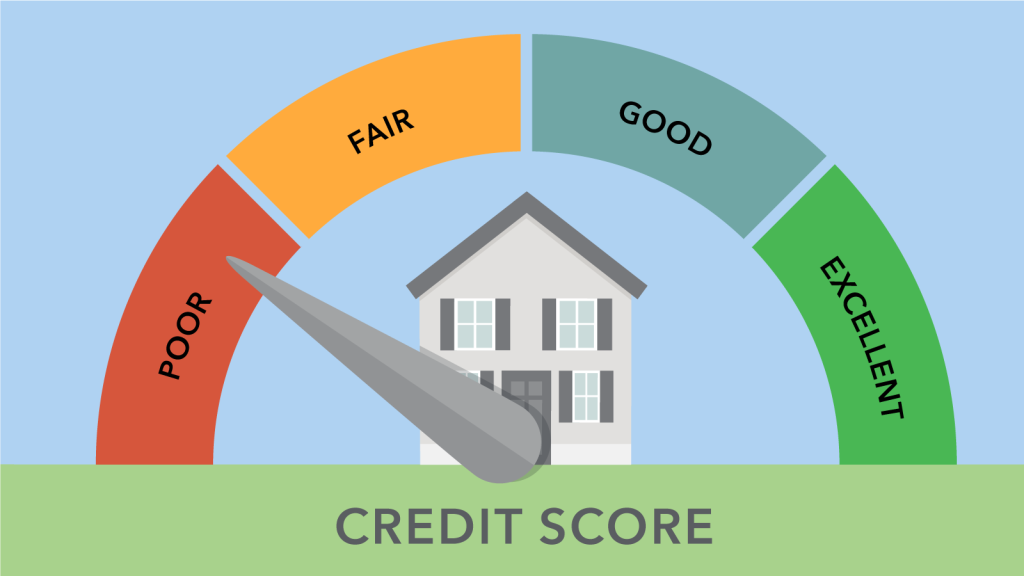The Role of Credit Scores in Buying a Home
Imagine you have found the perfect house. It has all the features you dream about—a big kitchen, a cozy backyard, and enough room for your growing family. But there’s one thing that could stand between you and the keys to that house: your credit score. Many home buyers do not realize how significant a credit score is in the home-buying process. Let’s dive into what a credit score is and why it plays such a crucial part when you decide to purchase a home.
What is a Credit Score?
A credit score is like a financial report card that tells lenders how good you are at borrowing money and paying it back. It’s a three-digit number that ranges usually from 300 to 850, with a higher number indicating a better score. This number is what banks and other financial institutions look at to decide if they should give you a loan, and if so, at what interest rate.
There are a few agencies that create these scores, with names you might have heard before, like FICO or VantageScore. They all use slightly different methods, but in general, they look at things like your payment history, the amounts you owe, how long you have had credit, new credit, and types of credit in use. It’s like a financial fingerprint that tells a story about how you manage money.
Why Does Your Credit Score Matter When Buying a Home?
When it comes to buying a home, your credit score is incredibly important. Here’s why:
- Loan Approval: First off, a good credit score can be the golden ticket to getting your home loan approved. It’s one of the first things lenders look at when you apply for a mortgage. A low score may signal that you’re a risky borrower, which can either lead to a straight up ‘no’, or it could land you a loan with higher interest rates.
- Better Interest Rates: The interest rate on your mortgage is like the cost of borrowing money. Credit scores come into play here because the better your score, the lower your interest rate could be. This difference can mean saving tens of thousands of dollars over the life of your mortgage. Yes, it’s that important!
- Loan Options: A higher credit score can also open the door to a variety of mortgage options. Borrowers with strong credit often have more lending choices because they are seen as less likely to default on their loans.
- Private Mortgage Insurance (PMI): For some mortgage programs, if you don’t put down at least 20% of the home’s purchase price, lenders could require PMI to protect themselves in case you can’t make your payments. A higher credit score may help to lower PMI costs, contributing to a lower monthly mortgage payment.
Improving Your Credit Score
Now, if your credit score isn’t where you want it to be, don’t worry—you’re not alone, and there are ways to improve it.
- Check and Monitor: Start by checking your credit report. It’s good to know where you stand, plus you can check for any errors that could be dragging your score down. Get into the habit of monitoring your credit regularly.
- Pay on Time: Late payments can hurt your score a lot. So, make it a point to pay your bills on time. Set reminders or automate your payments if that helps.
- Manage Debts: Try to lower your overall debt, especially on credit cards. Lenders look at your credit utilization—how much credit you’re using compared to the limit you have. It’s usually best to keep it under 30%.
- Hold Off on New Credit: Be careful about opening new credit accounts. Each time you apply for credit, it can dip your score a bit. And having too much new credit can make lenders worry that you’re overextending yourself.
Improving your credit score takes time and patience, but the payoff is worth it when those house keys are finally handed over.
What to Do If You Have a Low Credit Score
So what if your credit score is lower than you’d like? First, don’t give up hope. You still have options:
- Government-Backed Loans: Programs like FHA loans can be a bit more forgiving when it comes to credit scores. While they may still have minimum credit score requirements, these are often lower than what’s needed for conventional loans.
- Lender Credit Score Requirements: Not all lenders have the same credit requirements. Shop around and talk to different lenders to find one that may be willing to work with you.
- Down Payment: Sometimes offering a higher down payment can help if you have a lower credit score. It lowers the lender’s risk and can sometimes help you secure a loan.
- Credit Counseling: If you’re feeling stuck, consider reaching out to a credit counselor. They can offer guidance and help you create a plan to improve your credit.
Conclusion
Buying a home is a big step, and your credit score is a powerful part of the process. By understanding its role and taking steps to manage your credit health, you’re not just chasing a dream—you’re building one. Remember, it’s not just about the number itself, but what it represents: your reliability as a borrower. Whether you’re just starting to think about buying a house or already shopping around, paying close attention to your credit score can set you on the path to home ownership with more confidence and better choices.
Keep your credit score in shape, and the next time you find that perfect house, you’ll be ready to make it your home.


